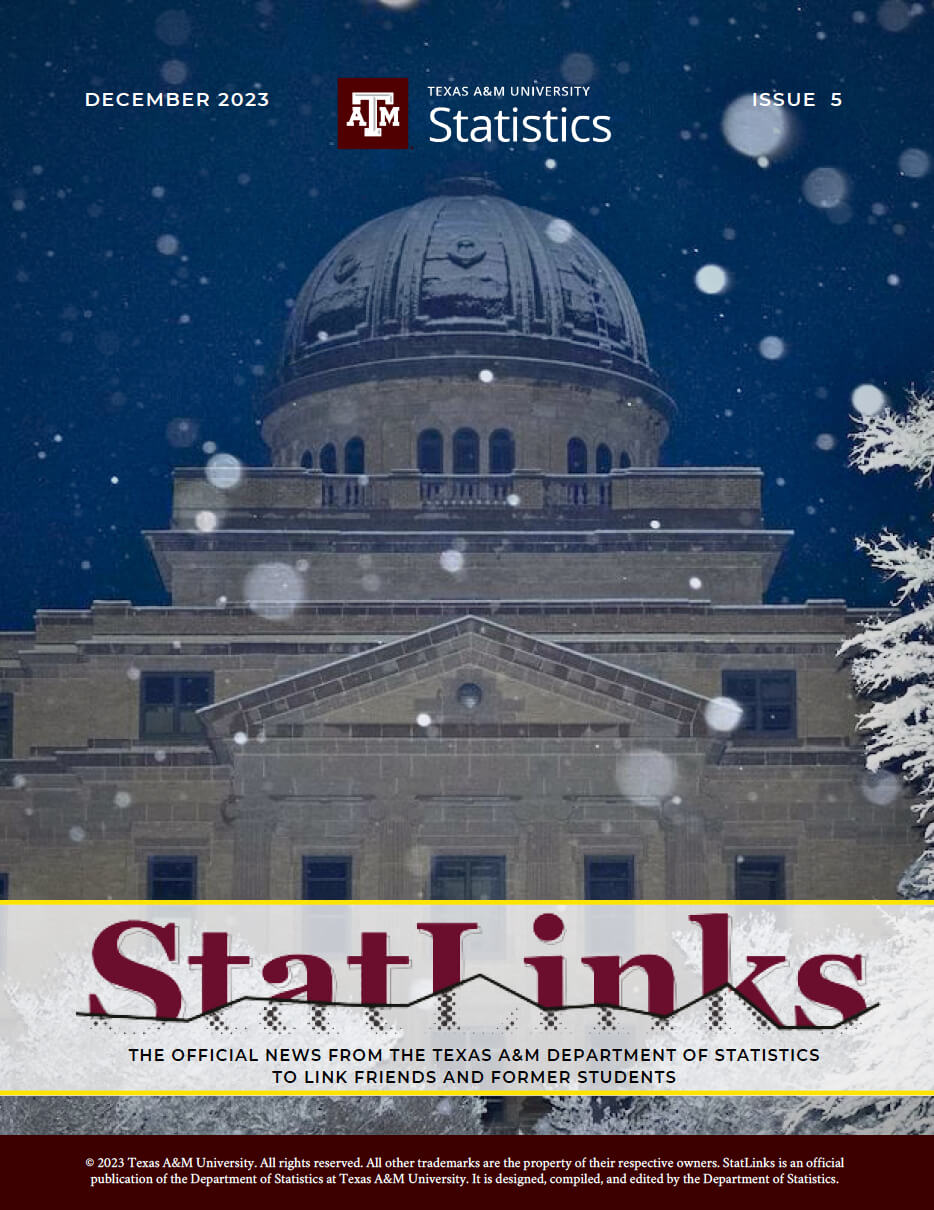SCOTT GODDARD
Ph.D Candidate, Department of Statistics
Texas A&M University
“Restricted Most Powerful Bayesian Tests”
ABSTRACT
Uniformly most powerful Bayesian tests (UMPBTs) are defined to be Bayesian tests that maximize the probability that the Bayes factor against a fixed null hypothesis exceeds a specified evidence threshold. Unfortunately, UMPBTs exist only in a relatively limited number of testing scenarios, and in particular they cannot be defined for most tests involving linear models. In this article, we generalize the notion of UMPBTs by restricting the class of alternative hypotheses that are considered in the test of a given null hypothesis. We call the resulting class of Bayesian hypothesis tests restricted most powerful Bayesian tests (RMPBTs). We then derive RMPBTs for linear models by restricting the class of possible alternative hypotheses to g-priors.
An important feature of the resulting class of tests is that their rejection regions coincide with the rejection regions of usual frequentist F-tests, provided that the evidence thresholds for the Bayesian tests are appropriately matched to the size of the classical tests. This correspondence leads to the definition of default Bayes factors for many common tests of linear hypotheses. We illustrate the use of RMPBTs in the special cases of ANOVA and one- and two-sample t-tests. We then use RMPBTs to develop a novel Bayesian variable selection method and compare its performance to other Bayesian tests based on g-priors in a sequence of numerical examples.
Finally, a software package for R is detailed which implements the RMPBTs described herein as well as many of the UMPBTs that have been developed.

